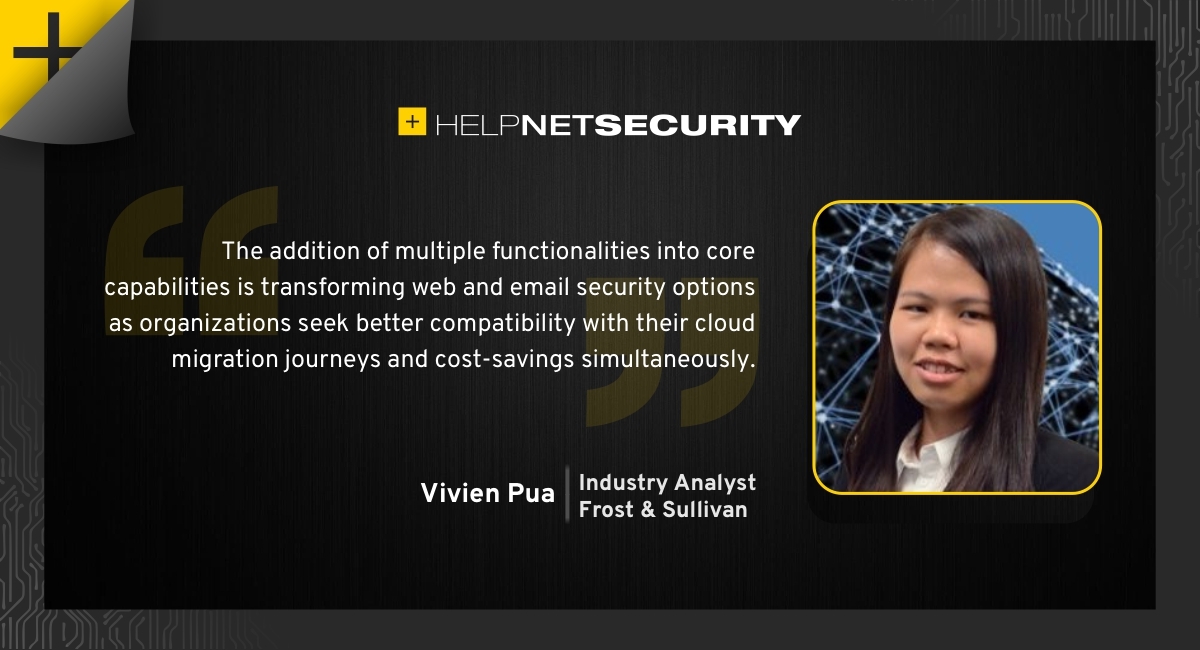SCM market to reach $2.2B in total web and email security revenues by 2024
The Secure Content Management (SCM) market is expected to achieve an 11.4% compound annual growth rate to reach $2.2 billion in total web and email security revenues by 2024, according to Frost & Sullivan.

Cloud-based deployments are projected to lead growth as more enterprises move their emails to the cloud and rely on the internet, including remote working, especially during COVID-19.
Malicious email and web links remain the most popular attack vectors
Malicious email and web links remain the most popular attack vectors in APAC countries. Threats include more advanced and sophisticated targeted phishing emails, business email compromises, and malicious content.
“The addition of multiple functionalities into core capabilities is transforming web and email security options as organizations seek better compatibility with their cloud migration journeys and cost-savings simultaneously.
“Various integrations, including data loss prevention (DLP), cloud access security broker (CASB), and email/browser isolation, are blurring distinctions among cybersecurity solutions,” said Vivien Pua, Industry Analyst, ICT at Frost & Sullivan.
“The larger but less mature web security market is also benefiting significantly from cloud-based deployment security solutions given their scalability, flexibility, and lower cost.”
Pua added: “Larger enterprises often require dedicated web and email security to effectively detect, prevent, and remediate threats. These companies with larger financial resources generally prioritize performance and will opt for standalone solutions or best-of-breed options.
“Conversely, SMBs are more open to integrated solutions or SaaS offerings, which offer them the necessary protection level, despite their limited security budgets.”
Strategic recommendations for further revenue opportunities
- Assist enterprise customers who are migrating to cloud email by integrating and/or transferring their email security to cloud-based deployments.
- Offer cloud-delivered integrated cybersecurity solutions to meet the business needs of remote workforces.
- Prepare on-premises deployments or hybrid deployment solutions for enterprises reliant on traditional operating procedures or that face regulatory compliance issues regarding on-the-cloud deployments.
- Explore new product development and acquisitions to match the security demands of the current and future threat climate.